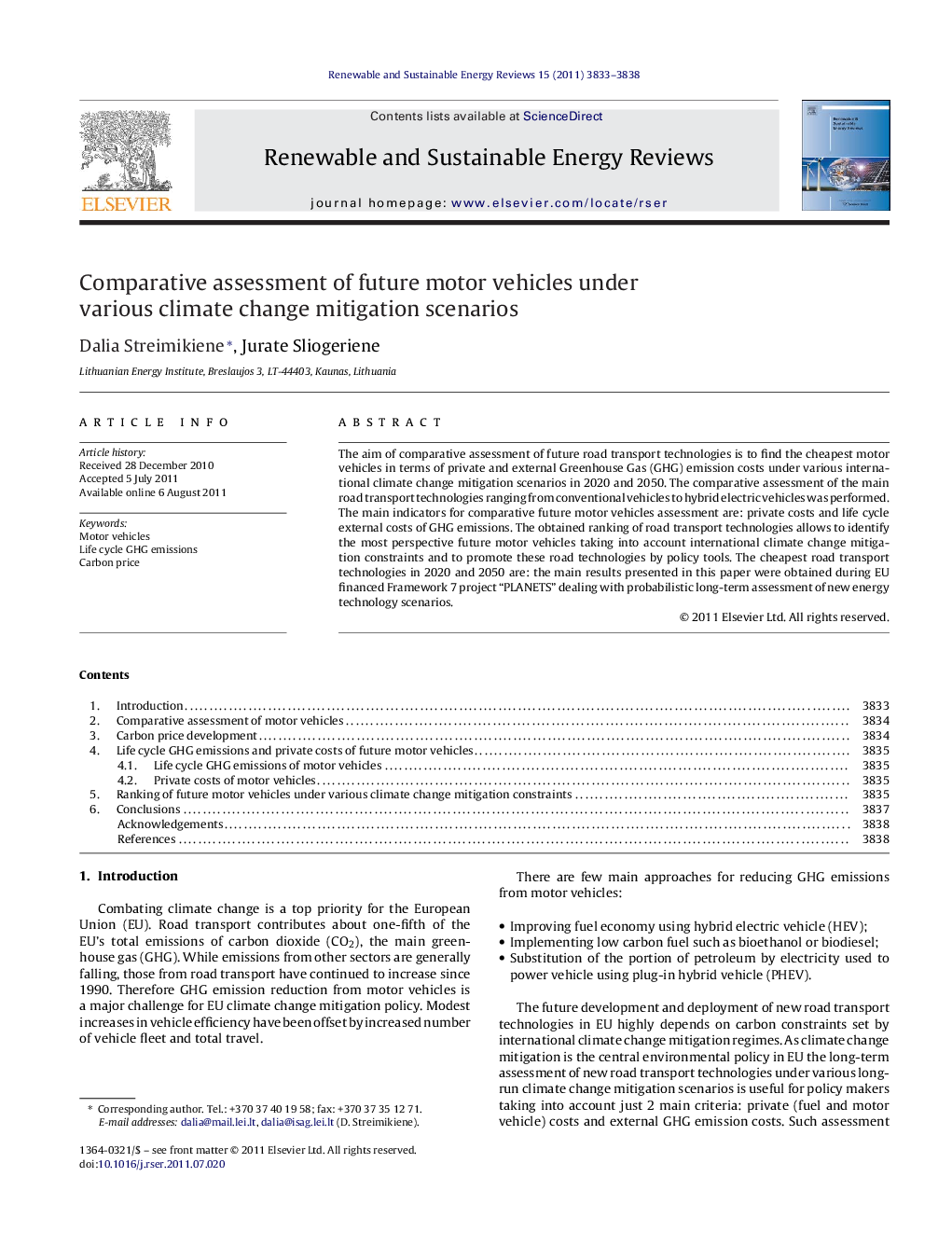| Article ID | Journal | Published Year | Pages | File Type |
|---|---|---|---|---|
| 1750841 | Renewable and Sustainable Energy Reviews | 2011 | 6 Pages |
The aim of comparative assessment of future road transport technologies is to find the cheapest motor vehicles in terms of private and external Greenhouse Gas (GHG) emission costs under various international climate change mitigation scenarios in 2020 and 2050. The comparative assessment of the main road transport technologies ranging from conventional vehicles to hybrid electric vehicles was performed. The main indicators for comparative future motor vehicles assessment are: private costs and life cycle external costs of GHG emissions. The obtained ranking of road transport technologies allows to identify the most perspective future motor vehicles taking into account international climate change mitigation constraints and to promote these road technologies by policy tools. The cheapest road transport technologies in 2020 and 2050 are: the main results presented in this paper were obtained during EU financed Framework 7 project “PLANETS” dealing with probabilistic long-term assessment of new energy technology scenarios.
